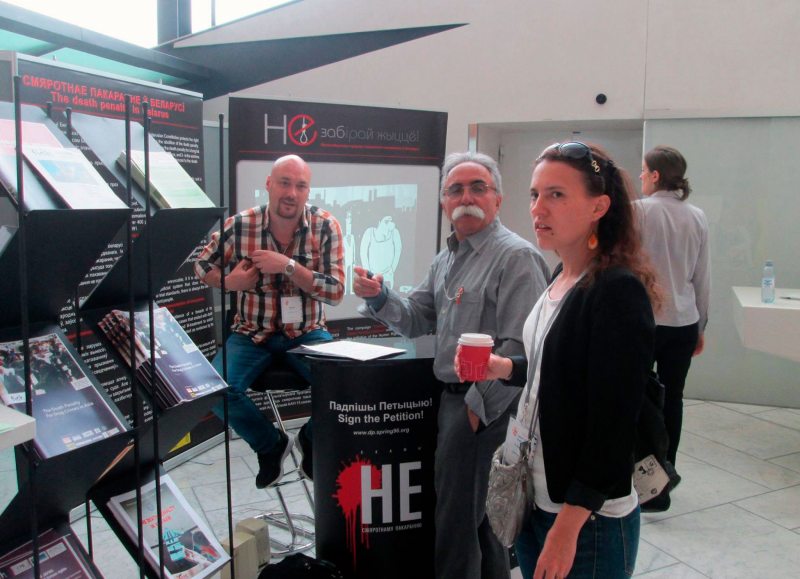The death penalty: Belarus still outside global trend
Human rights activist Valiantsin Stefanovich, who, along with his colleagues, is taking part in the 6th World Congress against the Death Penalty in Oslo, describes the major trends discussed at the global forum.
According to Valiantsin Stefanovich, the recent changes in the situation of the death penalty around the world were addressed by Stavros Lambrinidis, EU’s Special Representative for Human Rights, in his speech at the opening ceremony of the Congress:
“He said a very important thing: the time has passed when we asked you why you declared a moratorium on the death penalty; the time has come for us to ask you why you have not done so. Since, today the countries using the death penalty remain in a minority. Most countries in the world have either abolished the death penalty or introduced a moratorium, or abandoned it in practice.”
“At the opening of the Congress, the floor was given to representatives of the Foreign Ministries and the Ministries of Justice of the states, whcih ave introduced a moratorium on the death penalty or abolished it this year. It was very interesting to listen to the representatives of various countries, who have joined the global trend,” said Stefanovich.
In addition, the delegates of the forum watched Pope Francis’ video address, which once again called on all countries to join the global work for the abolition of the death penalty.
On June 22, there was a discussion on Belarus, which was arranged by representatives of the Human Rights Center "Viasna", the International Federation for Human Rights (FIDH) and the Norwegian Helsinki Committee. In his speech at the side-event, Valiantsin Stefanovich emphasized the fact that the official Minsk has recently sought to its improve relations with the West, and this may affect the solution to the problem of the death penalty in our country. “It is possible that these steps will lead to abolishing the death penalty. Or, at least, contribute to the introduction of a moratorium,” he said.
Viasna’s representative says the event was a success. “The discussion caused some interest, there were a lot of people. An effective argument was the presentation of the English-language version of the documentary book The Death Penalty in Belarus, which was presented by one of its authors, Palina Stsepanenka.
The discussion was also contributed by Liubou Kavaliova, mother of Uladzislau Kavaliou, a young man executed under charges of terrorism; Andrei Paluda, head of the campaign “Human Rights Defenders against Death Penalty in Belarus”; Florence Bellivier, FIDH Deputy Secretary General; and NHC’s Secretary General Bjørn Engesland.
On June 23, the Belarusian human rights activists have taken part in a number of thematic events, and in the evening, together with other delegations, they will join a global march against the death penalty, which will start at Oslo’s City Hall building and pass through the central streets of the Norwegian capital.


